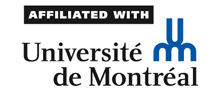What is the story?
While democratic institutions are currently being subverted by populists both in Hungary and Poland, the 5 Star Movement and the National Front are leading the polls in France and Italy respectively, and the Brits opted for a “hard Brexit” after a clearly anti-elite referendum campaign. These are just a few examples of how anti-establishment sentiments, typically depicting the existing political system as broken, and politicians as corrupt, are gaining prominence across the European continent.
In a recent article published in Research and Politics, we tackle this issue, and study the variation of anti-elite and anti-corruption salience in party positioning in European democracies. We show that whereas the salience of anti-elite appeals varies mostly as a function of party ideology, the salience of political corruption depends mostly on the country’s quality of government. Simultaneously, we introduce the most recent 2014 round of the Chapel Hill Expert Survey (CHES), which is the longest-running expert survey on party positioning in European democracies.
Hypotheses
Although some may intuitively assume that anti-elite and anti-corruption political messages are conceptually closely related, we expect that they function according to divergent logics.
Populist anti-elite stances are likely to be associated with ideological extremism. We differentiate two classical ideological axes: economic left-right, and placement on the socio-cultural (GAL-TAN) dimension, which spans from social liberalism to social conservatism. Left-wing extremists tend to stress economic issues, whereas right-wing extremists tend to emphasize their authoritarian and nationalist appeals. Both extremes, the economic left and the cultural right, should be more inclined to criticize the political establishment (in much the same way as they have opposed European integration).
Hypothesis 1: Parties of either the economic left or the socio-cultural right are more likely to emphasize anti-elite, anti-establishment rhetoric.
As regards anti-corruption appeals, they are less likely to be related to ideology. While populists often denounce the alleged corruption of career politicians, a call to reduce political corruption alone does not make a party populist. Instead, anti-corruption appeals are likely to be driven by the prevalence of corrupt practices. The more they are seen as widespread, the more this issue will be salient to voters and, thus, to parties.
Hypothesis 2: Parties in countries with high levels of political corruption are more likely to stress the importance of reducing political corruption.
Data and Methods
To test our hypotheses, we use the data from the 2014 wave of the Chapel Hill Expert Survey (CHES) available at chesdata.eu. Administered in 2014 to 337 political scientists specializing in political parties and European integration, the 2014 CHES, this data provides information about the positioning of 268 parties on political ideology, European integration, and various policy areas. The survey covers political parties in 31 countries, including all European Union member states, plus Norway, Switzerland and Turkey. In addition, the 2014 survey has been combined with prior waves to produce a trend file with five time points from 1999 to 2014, making the CHES the longest-running, most extensive expert survey on political parties in Europe.
The dependent variables in our research correspond to two newly included questions about the “salience of anti-establishment and anti-elite rhetoric” and the “salience of reducing political corruption” for the political parties of Europe. All experts were asked to provide salience scores for all parties in a given party system on these two questions; responses could range from 0 (not at all important) to 10 (very important).
We employ a multi-level regression analysis of the two variables. The predictors at the party-level are economic (left-right) and social (GAL-TAN) placement of political parties (we add also their quadratic terms to allow for curvilinear relationships), party age and incumbency. At the country-level, we include the quality of democracy using the Group’s International Country Risk Guide (ICRG) from the Quality of Government Dataset.
Results
The results of the multi-level analysis are presented graphically in Figures 1 and 2. In conformity with our hypotheses, anti-elite salience is strongly associated with ideological extremes (the economic left and the socio-cultural right, see Figure 1). In contrast, anti-corruption salience varies as a function of quality of government, but it is practically unrelated to ideology (see Figure 2). In addition, both anti-elite and anti-corruption salience tend to be higher among more recent parties and parties outside the government (results not shown in Figures 1 and 2).
Figure 1 Predicted anti-elite salience
Figure 2 Predicted anti-corruption salience
Implications
This research provides a meaningful contribution to a better understanding of party competition in Europe. It unveils a contrasting logic in the functioning of two types of similar party appeals. While anti-elite salience primarily depends on parties’ ideology, anti-corruption salience reflects the environment in which parties operate.
More generally, the anti-elite and anti-corruption questions, newly included in 2014, supplement core items in the CHES that have now been collected over five time points, making the dataset an increasingly useful source of information for dynamic analysis of party positioning across Europe.
For more information, see:
Polk, Jonathan, Jan Rovny, Ryan Bakker, Erica Edwards, Liesbet Hooghe, Seth Jolly, Jelle Koedam, Filip Kostelka, Gary Marks, Gijs Schumacher, Marco Steenbergen, Milada Vachudova and Marko Zilovic (2017). Explaining the salience of anti-elitism and reducing political corruption for political parties in Europe with the 2014 Chapel Hill Expert Survey data. Research & Politics 4 (1): 1-9. doi: 10.1177/2053168016686915. Available also here as an open-access PDF .

One Comment
Very interesting! Why doesn’t anti-elite salience appear among parties on the economic right or the social left? Is it that these positions are well represented in government?